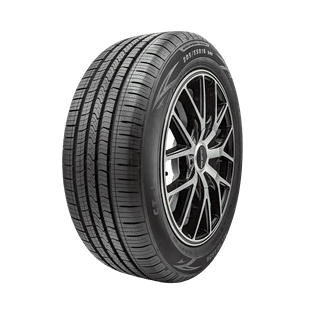Discover Top Tire Tracks Morris IL: Your Ultimate Location for Quality Tire Solutions
Discover Top Tire Tracks Morris IL: Your Ultimate Location for Quality Tire Solutions
Blog Article
The Ecological Benefits of Appropriate Tire Maintenance
Maintaining appropriate tire care is commonly ignored, yet its effect on the setting is profound. Appropriate tire maintenance not just expands the life expectancy of tires however likewise decreases landfill waste and adds to improved air quality.
Minimized Fuel Usage
Improving tire upkeep practices can lead to a significant reduction in fuel intake for cars. According to the United State Division of Energy, underinflated tires can reduce gas mileage by 0.2% for every 1 psi decrease in stress in all four tires.
In addition to tire pressure, normal tire rotations and alignments likewise play a critical role in fuel effectiveness. Unevenly used tires can boost fuel intake as the engine works harder to keep rate and grip. By keeping appropriate positioning and turning tires at recommended periods, drivers can make sure also prolong the life and wear of their tires, ultimately conserving gas and decreasing their carbon footprint.
Extended Tire Lifespan
Expanding the life expectancy of tires is a vital aspect of reliable vehicle maintenance practices that can produce expense financial savings and environmental advantages over time. By appropriately preserving tires, motorists can considerably extend their functionality, reducing the frequency at which new tires require to be manufactured and old ones gotten rid of. This not only saves beneficial sources yet likewise minimizes the energy and exhausts linked with tire production and disposal procedures.
On a regular basis checking tire pressure, rotating tires, and guaranteeing proper alignment are necessary actions in expanding tire life expectancy. Appropriate walk depth is crucial for ideal grip and security, however it also contributes in how much time tires can be used before needing replacement. In addition, preventing aggressive driving behaviors that increase tire wear, such as extreme stopping and doglegs, can even more boost tire resilience.
Inevitably, enhancing the durability of tires through positive upkeep not only benefits the setting by lowering waste and saving sources however also brings about cost savings for lorry owners by postponing the demand for new tire purchases.
Lower Discharges Result
Reliable tire upkeep methods contribute to a decrease in emissions outcome, straightening with ecological sustainability objectives in the auto sector. By preserving ideal tire pressure levels, chauffeurs can assist alleviate these adverse environmental influences.
In addition, properly maintained tires also improve traction and minimize rolling resistance, even more boosting gas effectiveness. This, consequently, minimizes the amount of exhaust gases launched into the ambience. Additionally, ensuring tires are effectively blown up and straightened can prolong the life expectancy of the tires, decreasing the regularity of tire substitutes and the associated ecological expenses of tire production and disposal.

Decreased Land Fill Waste
Provided the favorable influence of correct tire maintenance on decreasing exhausts outcome, an additional significant environmental benefit is the possibility for lowered land fill waste. By More Bonuses guaranteeing that tires are properly pumped up, aligned, well balanced, and turned on a regular basis, their life-span can be significantly expanded.

Improved Air High Quality
Enhancing air high quality through more proper tire maintenance practices is a crucial aspect of sustainable ecological stewardship. When tires are underinflated, they create a lot more moving resistance, resulting in enhanced gas usage and greater exhausts of hazardous contaminants such as carbon monoxide gas and nitrogen oxides. Properly filled with air tires not just enhance gas performance but also decrease the quantity of contaminants released right into the air.
In addition, well-kept tires with appropriate walk deepness and placement add to much safer driving problems, lowering the possibility of accidents that can cause the release of extra pollutants into the ambience. By expanding the lifespan of tires with regular maintenance and turning, fewer tires are disposed of too soon, lowering the ecological impact of tire disposal and manufacturing processes.
Verdict
Finally, correct tire maintenance offers countless environmental advantages. By minimizing gas intake, expanding tire lifespan, decreasing exhausts result, reducing garbage dump waste, and enhancing air high quality, individuals can contribute to a healthier planet. These efforts not just profit the atmosphere yet also assist to save resources and decrease general ecological influence. It is vital for individuals to focus on tire upkeep as an easy yet effective way to secure the atmosphere for future generations.
Proper tire maintenance not only prolongs the life expectancy of tires but also lowers land fill waste and adds to improved air quality - morris tire. By maintaining proper positioning and revolving tires at suggested intervals, chauffeurs can guarantee also lengthen the life and wear of their tires, inevitably saving fuel and reducing their carbon impact
By correctly preserving tires, drivers can significantly prolong their usability, minimizing the regularity at which brand-new tires need to be produced and old ones disposed of.On a regular basis inspecting tire pressure, turning tires, and guaranteeing correct placement are necessary actions in expanding tire life expectancy. In addition, guaranteeing tires are site web correctly pumped up and aligned can prolong the lifespan of the tires, lowering the regularity of tire substitutes and the connected environmental expenses of tire manufacturing and disposal.
Report this page